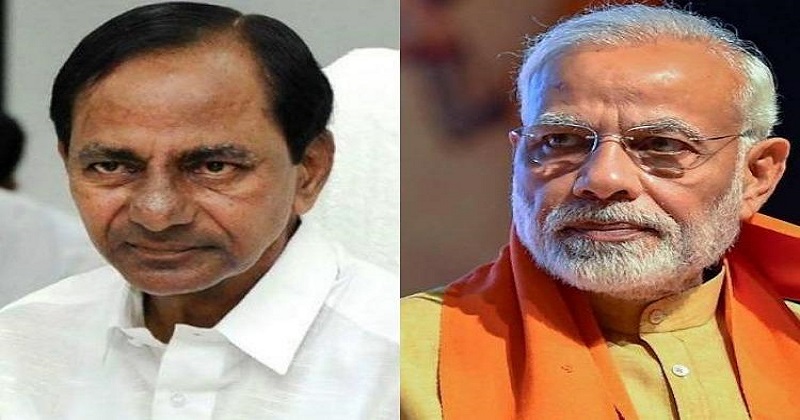
New Delhi: On Friday (September 3), Telangana Chief Minister K. Chandrasekhar Rao urged the Centre to sanction projects for the Hyderabad-Nagpur and Warangal-Hyderabad industrial corridors.
In a meeting with Prime Minister Narendra Modi in the national capital, the Chief Minister presented a list of requirements including sanction of grant-in-aid for the proposed textile park, establishment of Indian Institute of Management (IIM), Indian Institute of Information Technology (IIT), Tribal University and 21 Jawahar Navodaya Vidyalayas.
According to KCR, industrial corridors will create a large number of new jobs in the less-developed regions of the country and lead to tremendous economic growth. Rao told Modi that the industrial corridor between Hyderabad and Nagpur is planned along the lines of the Delhi-Mumbai industrial corridor, covering a length of 585 kilometers. The project will exploit Nagpur’s central location as a multi-modal international cargo hub and Hyderabad as a major IT and manufacturing hub.
‘It proposes to leverage both the high-speed Hyderabad-Nagpur rail link as well as Hyderabad-Nagpur 44 Expressway. The proposed corridor can be designed to be connected through high speed passenger and freight rail connectivity between Hyderabad and Nagpur and also by six/eight laning of the existing national highway – 44 between Hyderabad and Nagpur,’ the letter of the Chief Minister states. ‘About 50 km on either side of the road and rail corridor is considered as the immediate influence areas. Project influence area comprises of a combined population of 40 million, constituting approximately 27 per cent of total population of both Telangana and Maharashtra,’ it added.
Additionally, KCR urged the Centre to establish a state-of-the-art textile park at Warangal with a grant-in-aid of Rs 1,000 crore. The state plans to develop the textile park on 2,000 acres. The park will offer an all-inclusive textiles value chain from fibre to fabric, and on to garmenting/apparel making.
According to KCR, an investment of close to Rs 1,600 crore is needed to build the park’s infrastructure. While seeking Rs 1,000 crore from the Centre, he said the remaining costs would be covered by the state government. Telangana is the second-largest producer of cotton in India, producing over 60 lakh bales of long-staple cotton each year.
Read also: Actress Meghana Raj announces her son’s name. Watch the video
In addition, the Chief Minister requested the sanction of an Indian Institute of Management (IIM) for Telangana. Despite the Centre’s policy of establishing one IIM in each state, it has not sanctioned an IIM for Telangana since there is an Indian School of Business (ISB).
KCR wrote, however, that ordinary students could not afford to study at the ISB due to the exorbitant tuition. The state government has committed to providing the required land on the campus of the University of Hyderabad, since the campus contains more than 2,000 acres. The PM was also urged to sanction an Indian Institute of Information Technology (IIIT) at Karimnagar under a PPP model. The state government will provide the needed land, as well as contributing funds as part of the PPP model. Also, he requested that the Education Ministry take steps to establish a tribal university in Telangana, as outlined in the State Reorganisation Act, 2014. The Centre should also establish this institution as a central university. The state government has already identified 200 acres of land near Warangal for the tribal varsity.
Furthermore, the Chief Minister requested that more Indian Police Service (IPS) posts be created following the formation of Telangana by creating 13 new districts. In his view, the formation of new police districts, commissionearates, zones and multi-zones led to the need to increase the IPS cadet number from 139 to 195.
Additionally, he wanted 21 newly carved-out rural districts to have one Jawahar Navodaya Vidyalaya (JNV). JNVs provide high-quality middle and secondary education to rural students, especially those from poorer families. Moreover, the KCR requested that the Centre completely fund roads in areas affected by left-wing extremism instead of putting them in CSS format, in which the state contributes 60% and 40%, respectively.

Post Your Comments